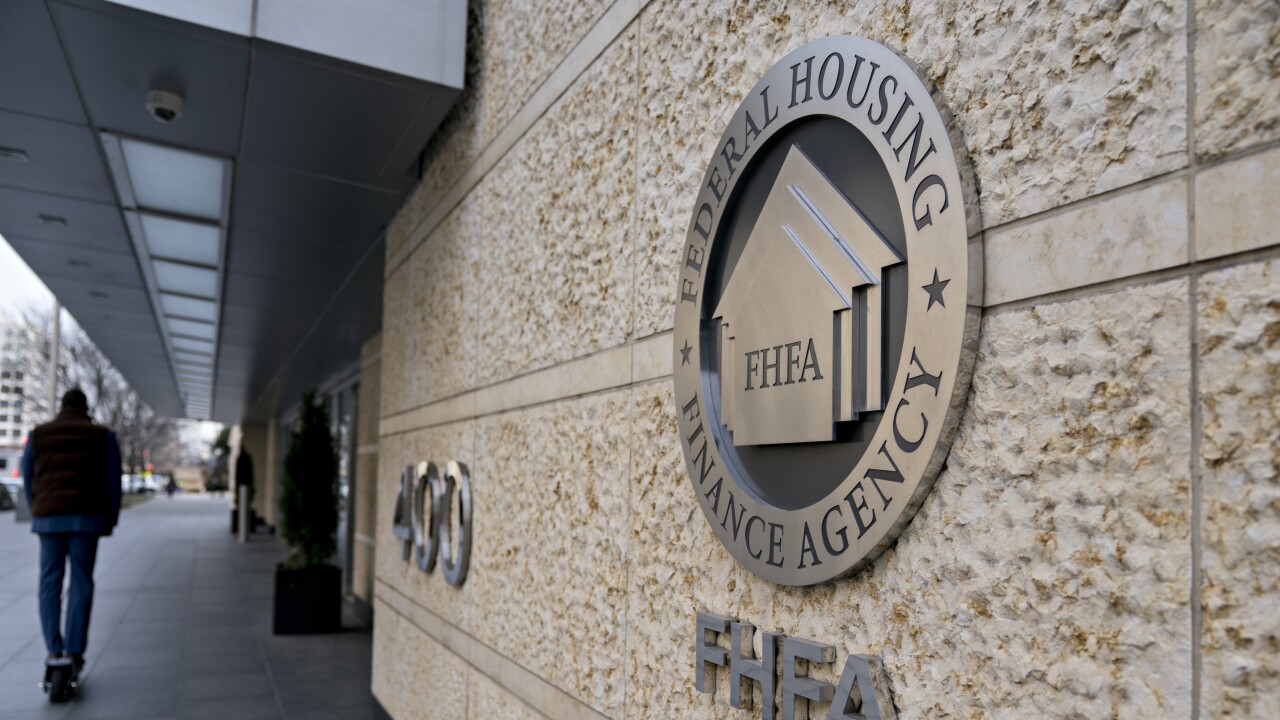
Test files are for frat houses, not your mortgage business.
That is the clear takeaway from
It is unclear how widespread the problem is, but the incident raises doubts at an important time, given
When asked whether there have been other instances of licensing-test fraud or cheating, a Conference of State Bank Supervisors official said it was the first one made public.
"We cannot speak to other instances that may or may not have happened, unless those instances have resulted in public orders, and I am not aware of other public orders that address this issue," said John Prendergast, a vice president of the CSBS, which through a subsidiary owns and operates the Nationwide Mortgage Licensing System and Registry.
There is little doubt that,
The Mortgage Testing and Education Board has
CSBS officials acknowledge test cheats are hard to uncover, particularly in cases of in-house collusion. But with more
Regulators expect lenders to have controls in place to at least try to prevent testing and education infractions.
Under the consent order, New Day must work temporarily with an outside agency that will monitor its compliance efforts until regulators are more confident that its in-house operations are sound. So while
"If [mortgage businesses] are aware that there are more eyes on people, there is independent oversight and they have to sign off that they have to manage their employees in a particular way, it is really going to make them think twice about trying to do something that they know isn't right," Prendergast said.
He also said that having a tip line that allows employees to anonymously report any infractions, as New Day will provide going forward, is a good practice.
Regulators are not the only ones worried about licensing-test fraud. Employers are broadly concerned with the integrity of individuals' licenses as they move from company to company, said Greg Schroeder, president of Comergence, a risk management firm for originators and appraisers.
This is particularly important for nonbanks and brokers, who often find the testing requirements related to their licenses gives them a competitive edge over bank originators who only have to register without testing.
New Day's consent order will force some of its licensed originators who took tests during 2013, when the questionable activity took place, to retake the exams to assure the integrity of their licenses.
But all anyone can find out when they search the Nationwide Mortgage Licensing System is whether a particular individual has a license, noted Schroeder.
"You either pass or fail, and that would be the issue with your NMLS number. If you don't pass, you obviously don't get the number," he said.
Regulators report actions such as this consent order as they come out, said Schroeder, whose company has a contract with the NMLS to share pertinent alerts each night with its clients.
In general, if an integrity question arises about existing or would-be employees, re-testing them may be a way to address the concerns. But companies need to be sure that whatever action they take complies with applicable labor laws, Schroeder said.





